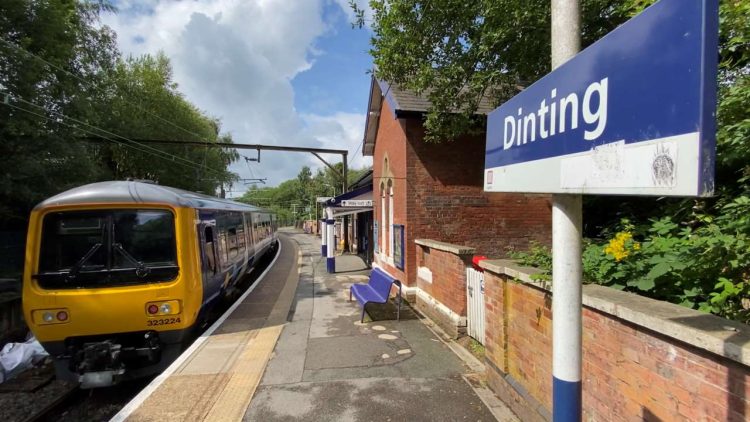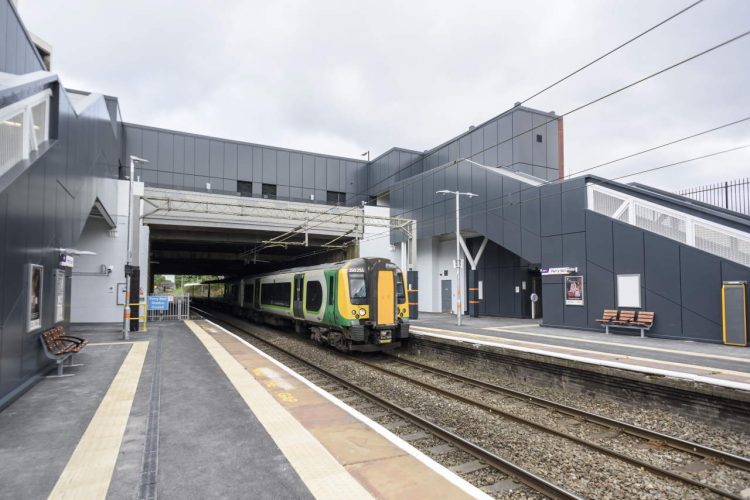Passengers in Greater Manchester and the West Midlands are set to benefit from “simpler, more flexible travel” from next year, under new pilot schemes confirmed by Rail Minister Huw Merriman today [Thursday 1 February].
The pilot schemes will involve stations across the West Midlands and on selected routes in Greater Manchester being fitted with technology which allows people to tap in and tap out, with the system charging them the cheapest fare for their journey.
There are already plans to expand Pay As You Go in the South East of England later in 2024, and today’s announcement will bring the number of tap-in-tap-out stations in England to around five hundred in 2025.
The Rail Delivery Group and industry partners, supported by £16.4m of DfT funding, have completed the final phase of installing barcoding technology, allowing passengers to scan digital tickets at the gate.
The government claims that this means that passengers at every station in Great Britain (outside devolved Merseyrail and TfL) will have more flexibility in how they buy train tickets.
The project is part of what the government describes as a plan to “reform the railways” and follows its abandonment of plans to close to close ticket offices last year in the face of widespread public opposition. The new plan also aligns with ‘Trailblazer’ devolution deals, which aim to give local leaders more say in how the rail network runs.
The ‘rail reform agenda’ has recently seen LNER begin its Simpler Fares pilot, following its introduction of Single Leg pricing on its routes, while the government has also stated that it intends to bring forward a draft Bill this Parliamentary session on Great British Railways for pre-legislative scrutiny.
If successful, these trials could lead to the extension of similar technology to more stations in the North and Midlands. Some of the funding will come from £100m reallocated from HS2.
The West Midlands pilot will include seventy-five stations in the Transport for West Midlands (TfWM) area (including five which are currently under construction). It will use existing ‘Swift’ smartcards, which enable passengers to use local bus and tram services as well as trains using one card.
Greater Manchester’s pilot scheme will cover seventeen stations on the Glossop-to-Manchester Piccadilly and Stalybridge-to-Victoria lines, and will use contactless bank cards and devices. It is hoped that this will support the delivery of full multi-modal fares and ticketing integration across bus, Metrolink, rail and cycle hire as part of the Bee Network by 2030.

The Department for Transport, Great British Railways Transition Team (GBRTT) and Rail Delivery Group (RDG) have worked closely with TfWM, the West Midlands Rail Executive, Transport for Greater Manchester and train operators in preparing the pilots, and will continue working to finalise plans for the pilots ahead of their launch in 2025.
GBRTT is also developing new regional partnerships with Transport for West Midlands and Transport for Greater Manchester, with the aim of helping more towns and cities to benefit from greater local decision-making on issues such as ticketing, services and stations.
In a separate development, the Transport Secretary and Rail Minister held a meeting with regional Mayors on Wednesday (31 January) to discuss proposals for rail connections between Birmingham and Manchester to replace the abandoned HS2.

Andy Street, Mayor of the West Midlands, said: “Our Swift smartcard already enables passengers to transfer seamlessly between our various local bus operators and Metro tram services whilst guaranteeing they get best value fares.
“Now thanks to this pilot scheme, we will now add rail to our offering – making Swift truly multi-modal and bringing us much closer to a London ‘Oyster card’ style system.
“This is a practical example of how the Deeper Devolution Deal we agreed with Government is delivering tangible benefits for local people right across our region.”
Stewart Fox-Mills, Director for Fares, Ticketing and Retail at GBRTT said: “Buying a train ticket is often too complicated. Which is why work to simplify the experience customers have is such a vital part of wider rail reforms.
“Partnership working, bringing the railway together to work with local partners, has unlocked pilots that will deliver a more seamless travel experience for customers in the West Midlands and Greater Manchester. GBRTT will continue to work with partners to deliver a more locally accountable, integrated rail network.”
Rail Minister Huw Merriman said: “We want to encourage more people back onto our trains, with tap-in technology meaning using our stations couldn’t be easier.
“Our railways have a long history, but projects like these – part of the Government’s wider plans for reform – will ensure they have a bright future too.”
Jacqueline Starr, Chief Executive of Rail Delivery Group, said: “We’re glad the rail industry has made it easier for customers to travel on a digital barcode ticket across the National Rail network by completing the rollout of barcode scanners on gatelines.
“We are also proud to support the Pay As You Go pilots in Greater Manchester and West Midlands. This is another significant step in making fares and ticketing easier for everyone.”





Responses
‘Abandoned HS2’? The Act of Parliament hasn’t been repealed yet and still remains in force.